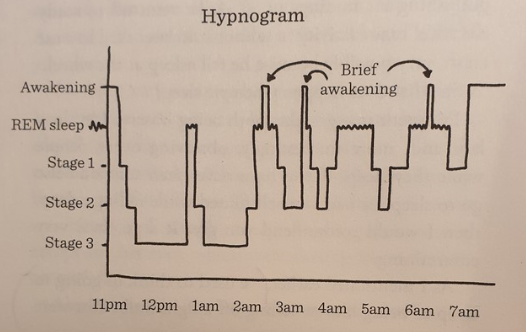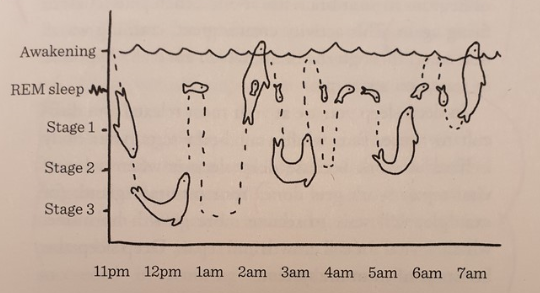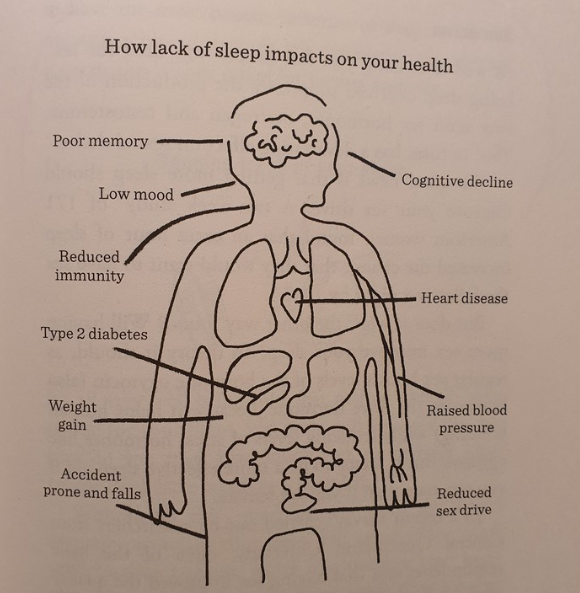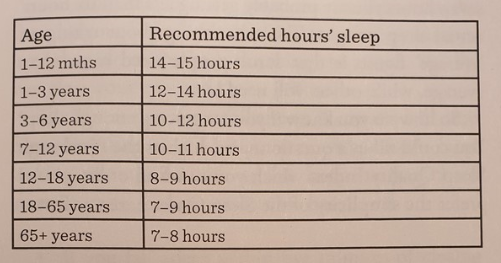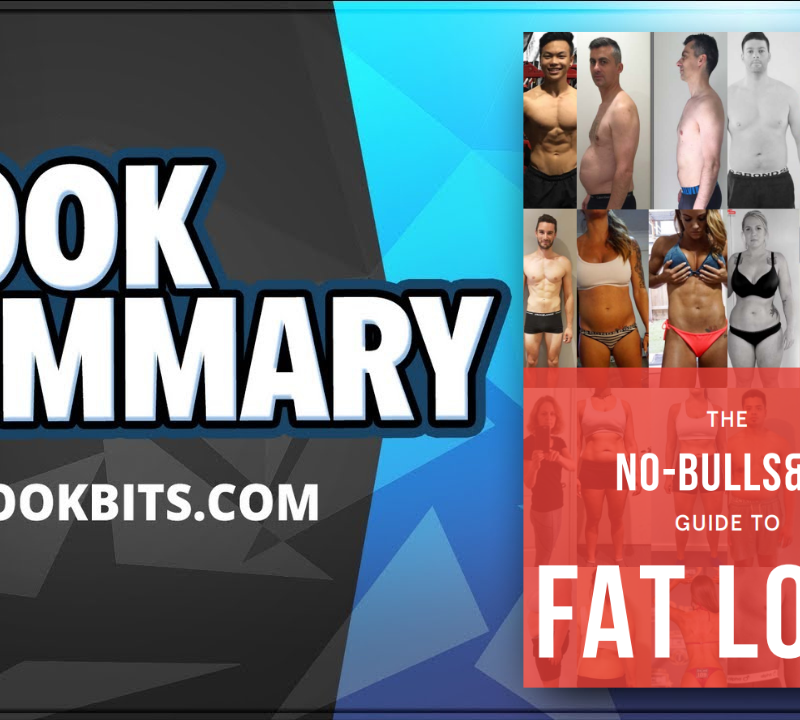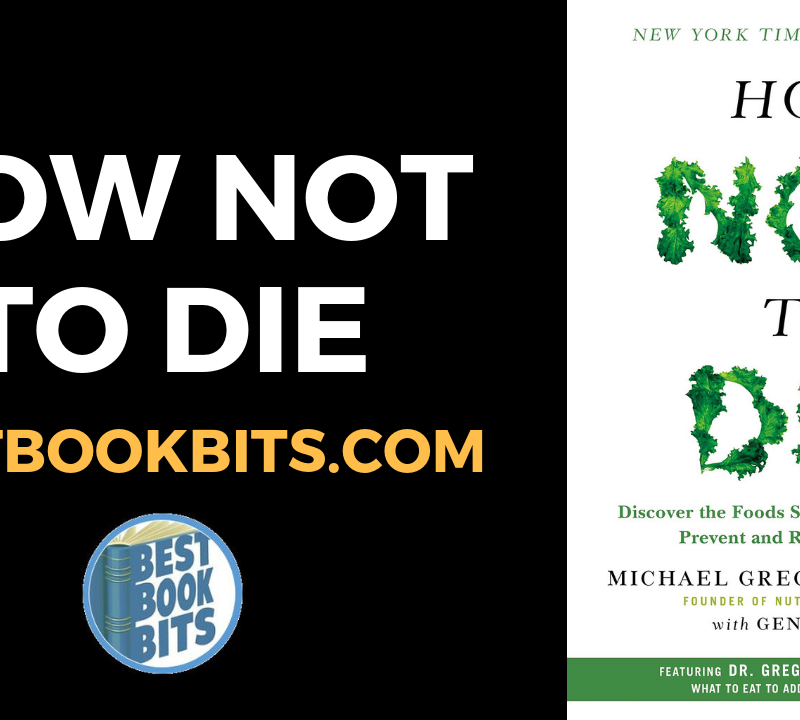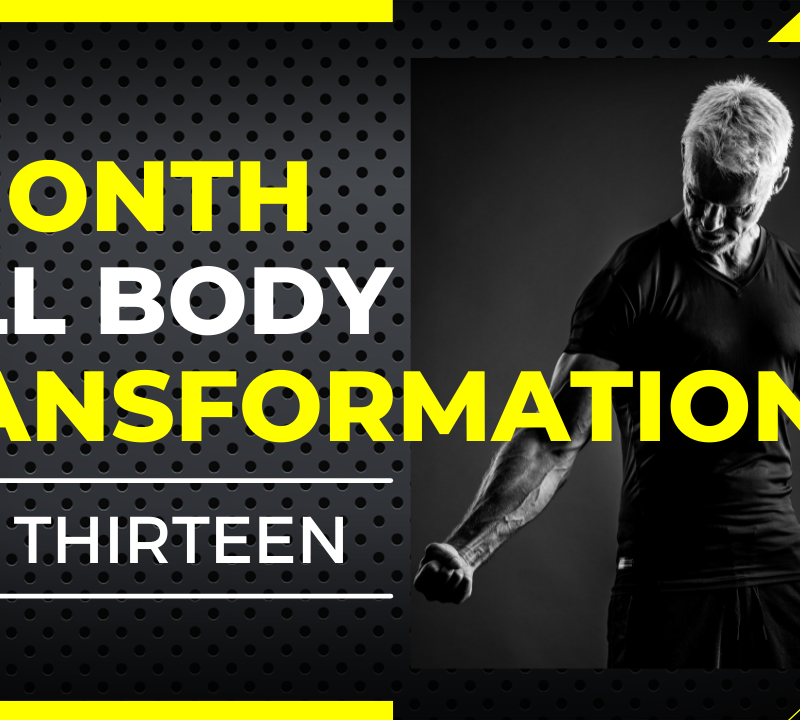JOIN THE ‘BEST BOOK CLUB’ NOW HERE
DOWNLOAD THIS FREE PDF SUMMARY HERE
CHECK OUT THE FOLLOWING Book | 150 PDF Summaries | Course | YouTube | Coaching |Spotify | Instagram | Facebook | Newsletter | Book Club | Website
Fast Asleep: How to Get a Really Good Night’s Rest by Dr Michael Mosley
Can’t sleep? Who better to deliver the recipe for a peaceful night based on groundbreaking sleep science than the bestselling author of The Fast 800, The Clever Guts Diet and The 8-week Blood Sugar Diet.
A good night’s sleep is essential for a healthy brain and body. So why do so many of us struggle to sleep well?
In Fast Asleep, Dr Michael Mosley explains what happens when we sleep, what triggers common sleep problems and why standard advice rarely works.
Prone to insomnia, he has taken part in numerous sleep experiments and tested every remedy going. The result is a radical, four-week programme, based on the latest science, designed to help you re-establish a healthy sleep pattern in record time.
With plenty of surprising advice including tips for teenagers, people working night shifts and those prone to jet lag, plus recipes which will boost your deep sleep by improving your gut microbiome, Fast Asleep provides the tools you need to sleep better, reduce stress and feel happier.
About the Author
Dr. Michael Mosley is the #1 New York Times bestselling author of The FastDiet, FastExercise, FastLife, The 8-Week Blood Sugar Diet, and The Clever Gut Diet. Dr. Mosley trained to be a doctor at the Royal Free Hospital in London before joining the BBC, where he spent three decades as a science journalist and executive producer. Now freelance, he is a well-known television personality and has won numerous television awards, including an RTS (Royal Television Award), and was named Medical Journalist of the Year by the British Medical Association.
Introduction
Sleep is something we all do; in fact, we spend around a third of our lives in this strange, unconscious state. And yet until recently we understood very little about what sleep is for, how much we need, and the role that dreams play in improving our mental health.
The good news is that over the last 20 years there has been a revolution in our understanding of sleep and just how important it is. Not so long ago it was fashionable to brag that you hardly slept at all, and the mark of a successful business person or politician was their ability to get by on very little shut-eye.
Our current attitudes to sleep are very different. Thanks to recent research, we know that too little sleep can devastate your body, brain and microbiome (gut bacteria), dramatically increasing your risk of developing a range of chronic conditions such as obesity, type 2 diabetes and dementia.
And, when it comes to sleep, it’s not just about quantity, but about quality too.
We have learned, through extensive sleep studies, that if you don’t get enough of the right sort of sleep, you increase your risk of depression and memory problems. Which is all very worrying, particularly if, like a third of the adult population, you suffer from insomnia.
The last 20 years, the author has suffered quite badly from intermittent insomnia, to the point where he was in real despair.
You need sleep to consolidate your memories.
The first thing that might surprise you is that the most effective way to cure insomnia is to reboot your brain by putting yourself through a short course of Sleep Restriction Therapy. It is called Sleep Restriction Therapy because, paradoxically, it demands that you cut back on your sleep. Yes, I am going to help you sleep better by asking you to cut the amount of time you spend in bed.
One of the classic mistakes people who have problems sleeping make is to try and spend more time in bed – when, for most people, lying in bed not sleeping isn’t restful, it is very stressful. It also sets up a really bad behavior pattern where your brain comes to associate being in bed with being awake, fretting.
Studies have shown that sleep restriction is more effective than anything else, including drugs, and that the results last, long-term.
How we woke up to sleep
It is astonishing that despite the fact that we spend up to a third of our lives – around 25 years – asleep, until relatively recently we knew very little about what went on during that time. A hundred years ago, most people thought that the brain simply switched off, like a light bulb, when you went to sleep.
The American inventor Thomas Edison, who manufactured the first light bulbs, and that invention did more than any other to disrupt our sleeping patterns. Edison thought that sleep was a waste of time.
We used to think of going to sleep as being like switching off a light bulb. You were either awake or asleep. We now know it is much more complicated than that.
Sleep involves three distinct states: light sleep, deep sleep and REM (Rapid Eye Movement) sleep. We sleep in roughly 90- minute cycles throughout the night, flipping between one state and another.
During the first part of the night you get most of your deep sleep, while the second half of the night is dominated by REM sleep. Most people wake two or three times a night. If you are lucky you won’t even be aware of it. If you are unlucky, you will wake up and stay awake.
When you go to bed and close your eyes, you should soon start to drift off into light sleep (Stage 1). At this point you are drowsy, but easy to rouse. If the dog next door starts to bark or your partner starts to snore loudly, you might wake up.
Like a seal, plunging joyfully into the depths of the night.
For some people, the act of falling asleep is frustrating rather than joyful.
The next stage, Stage 2, also counts as ‘light sleep’. As you enter it, your core body temperature (typically measured with a rectal thermometer), which began to fall even before you got into bed, drops even further.
Your heart rate slows down it and your breathing also slows and becomes steadier.
When you are entering Stage 2, you may well do what is known as a hypnagogic jerk or ‘sleep start.’ This is an involuntary twitch of the muscles as you go deeper into sleep.
If all is going well, within an hour of beginning to nod off you will have entered Stage 3 – deep sleep. This is also known as slow-wave sleep because it is when an EEG would start recording slow, deep waves. Millions of neurons in your brain fire at once, then pause, before firing again.
In deep sleep you are at your most relaxed and difficult to rouse. But, while your brain rests, your body is hard at work because deep sleep is when a lot of vital repair work gets done.
Your pituitary gland, for example, will start to secrete more growth hormone, which is vital for cell growth and repair. Deep sleep also boosts your immune system.
Overnight inside your head. A network of channels in your brain, known as the glymphatic system, opens up and pumps cerebrospinal fluid through it while you are in deep sleep.
This fluid flows through your brain tissue and washes away the toxic waste that has built up there during the day.
As we get older, we tend to get less deep sleep, which means that our brains are not as good at washing away the toxins.
Young people typically get a couple of hours of deep sleep a night. When you get older life in your 60s you are lucky if you are getting 30 minutes.
There is a very clear link between poor sleep and the development of dementia.
To maximize your chance of getting deep sleep, it is a good idea to go to bed before midnight, since your brain gets the most deep sleep during the first half of the night.
Deep sleep and memory
As well as giving your brain a good spring clean, deep sleep is when your brain sorts out your memories and shifts the useful ones into deep storage.
Even compared to a modern computer, your brain can store an extraordinary amount of data; a recent estimate puts its storage capacity at around 1000 terabytes, which is a billion megabytes. A computer with that capacity could store around 2 billion books or 500,000 films.
During the night, the memories that are considered important are shifted from the hippocampus.
(the short-term storage are of the brain) to the safety of the prefrontal cortex (the long-term storage area of the brain – think of it as your hard drive). The memories left behind in short-term storage are gradually deleted.
REM sleep and emotions
Although we dream at other points in the night, REM sleep is when we have our most vivid dreams, and it is these dreams that help us process and deal with bad memories and experiences.
Dreams have been called the cinema of the mind.
Dreaming during REM sleep is a form of psychotherapy, where you revisit unpleasant memories and events but remain calm. This allows you to process your emotions and defuse them.
Sleep your way to the top
One other great thing about REM sleep is that it makes us more creative. It seems that the age-old advice about ‘sleeping on a problem’ is spot on: research has shown that a good night’s sleep, particularly one that is rich in REM, increases our ability to come up with novel solutions to problems.
Things that go wrong if you don’t get a decent night’s sleep
Why lack of sleep makes you fat
A bad night’s sleep not only affects your brain, but also messes with your body, including its ability to control your blood sugar levels. In the long run, this can lead to obesity and diabetes.
People who sleep badly most nights are far more likely to become overweight or obese and develop type 2 diabetes than those who sleep really well.
So why does this happen? ‘We know that when you are sleep deprived,’ Dr Scott said, ‘this alters your appetite hormones, making you more likely to feel hungry and less likely to feel full. We also know that when people are sleep deprived, they often crave sweet foods.
The vicious circle
Lack of sleep makes you fatter, but piling on extra fat (particularly around the gut and neck) also means you sleep worse. It is a vicious circle.
Sex drive
As well as making you feel simply ‘too tired for sex’, being sleep deprived suppresses the production of the two main sex hormones, oestrogen and testosterone. This, in turn, has a devastating effect on sexual desire. The good news is that getting more sleep should improve your sex drive.
- What puts us to sleep and what keeps us awake
The urge to sleep begins early in the day, from the moment that you first wake up and get out of bed. Shortly, before you wake, your body releases a surge of hormones, including the stress hormone cortisol, which prepares you for the day. But waking also triggers the release of a chemical in the brain called adenosine.
Adenosine binds to receptors in your brain, slowing down brain activity. This suppression of brain cell activity is what causes the feeling of drowsiness.
Your internal clocks
As well as the build-up of adenosine, the other major driver of sleep is your circadian clock. Deep in your brain there is a small group of cells called the suprachiasmatic nucleus (SCN). If I were to drill a hole between your eyebrows and carry on drilling into your brain until I hit the hypothalamus, and if I were then to stick an electrode down that hole, you would actually be able to hear the clock tick.
Oddly enough, your circadian clock doesn’t follow a day that is exactly 24 hours long. Some people’s clock runs fast, others’ runs slow. If you have a fast clock then that means you are a lark – you like to get up early. If you have a slow clock then you are an owl, someone who likes to stay up late. The reason you don’t go completely out of whack is that your internal clock is reset every day by light.
Snoring
Along with having a full bladder, one of the main reasons why people sleep badly is that they or their partner snore.
The main reason most people snore is that they are overweight.
Snoring and sleep apnoea
As well as being annoying, snoring can be a sign of Obstructive Sleep Apnoea (OSA), which is much more worrying. OSA occurs when muscles at the back of the throat relax and temporarily restrict or block airflow as you sleep, which leads to falling blood oxygen levels. This, combined with an increase in blood pressure, puts you at increased risk of having a heart attack.
JOIN THE ‘BEST BOOK CLUB’ NOW HERE
DOWNLOAD THIS FREE PDF SUMMARY HERE
CHECK OUT THE FOLLOWING Book | 150 PDF Summaries | Course | YouTube | Coaching |Spotify | Instagram | Facebook | Newsletter | Book Club | Website
- Are you getting enough?
Sleep is essential for spring-cleaning our brains, putting our memories into long-term storage and boosting creativity. Poor sleep, as we saw in Chapter 1, contributes to low mood, obesity, type 2 diabetes and low sex drive.
Far from being ‘a criminal waste of time’, as the inventor Thomas Edison claimed, getting enough good-quality sleep is vital for our mental and physical well-being. But how do you know if you are getting enough?
According to the National Sleep Foundation, these are the targets you should be hitting at different stages of your life:
Why do we need to sleep as much as we do?
We know that not getting enough sleep has a big impact on your brain and your body. But why most of us need at least 6-7 hours of sleep each night is more of a mystery. Horses, giraffes and elephants seem to get by quite happily on a couple of hours, while our fellow primates need considerably more than we do.
Some anthropologists think that the invention of the bed (or, more accurately, ‘a sleeping platform’) by great apes, tens of millions of years ago, was a hugely important part of our evolutionary story. Sleeping platforms meant that, unlike the precarious baboons, our remote ancestors could sleep securely in the trees, safe from predators and blood-sucking insects. It also allowed them to get more deep and REM sleep, which presumably boosted their brain power.
But if sleep is so important for brain development, why do humans, with the biggest brains of all the primates, sleep the least? The short answer is: nobody knows.
Falling asleep at the wheel
In a recent survey of more than a thousand British doctors, 40% admitted falling asleep at the wheel after a night shift, and more than one in four said they knew of a colleague who had died in a car accident after a night on call.
We have strict laws against drink-driving, but not against sleep-deprived driving. In the US, sleep deprived drivers are responsible for an estimated 100,000 car accidents every year and over 1500 deaths.
When the clocks change
Twice a year, every year, 1.5 billion people in 70 countries turn their clocks forward by an hour in the spring and back by an hour in the autumn. This translates into roughly 40 minutes more, or less, sleep, on the night of the change. The effects of this natural experiment are impressive.
- Tried and tested ways to improve your sleep
Establishing good bedtime habits
Treating sleep as a habit, one that you can improve with practice, and they all agree that getting into a regular wake-up-go-to-bed routine is a good starting point.
Your regular wake-up-go-to-bed routine is known as your ‘sleep window’.
Clearing out the bedroom junk
There’s a widespread myth that light coming from your computer or mobile phone (blue light) is bad for you because it switches off production of the sleep hormone, melatonin. In reality, light levels produced by these devices are too low to do much damage and the real reason they are disruptive is because they are exciting your brain just when you want it to be nice and relaxed.
Sleep deprivation is spectacularly bad for teen brains and the whole point of social media is that it has been designed by evil geniuses with the sole purpose of keeping you hooked.
8pm: your wind-down routine
A proper wind-down routine begins several hours before you go to bed.
Stop eating
Ideally, you will have finished your last meal of the day at least three hours before you go to bed.
9.30pm: find something soothing to do
Dim the lights
By 9.30pm, your pineal gland should be busy pumping out the hormone melatonin, which in turn will be orchestrating the rest of your brain, getting it lined up for a night of sleep. Melatonin levels typically start to rise about 9pm and peak in the early hours of the morning.
Have a warm bath
Instead of relaxing by knocking back a few drinks, you would be better off having a warm bath (with a few drops of an essential oil, such as lavender), reading a book or listening to music. Studies have shown that having a warm bath or shower an hour before bedtime can help you fall asleep and stay asleep.
Listen to music
According to the National Sleep Foundation, studies have shown that older adults who listen to relaxing music before bed fall asleep faster, sleep longer, wake up less during the night and rate their nights as more restful.
10.30pm: countdown to sleep
Try keeping a ‘to-do’ journal
The idea is that you write down a list of the things you need to do the next day. This will, hopefully, mean you spend less time agonizing about your to-do list in the middle of the night.
Consider taking melatonin
Synthetic melatonin is widely available and can be quite effective.
The long night of the soul
The rule of thumb is that if you feel like you haven’t fallen asleep within 20 minutes of closing your eyes then you should get out of bed and out of your bedroom
The technical term for this process is ‘stimulus control’ and the reason you need to get up rather than just lie there is that you must associate bed with sleep and sex, nothing else. If you lay awake in bed, night after night, wrestling with your mental demons, this will trigger all sorts of unhelpful associations in your brain and body.
You do not want to reinforce, consciously nor unconsciously, any associations between ‘going to bed’ and ‘not being able to fall asleep’.
Night-time breathing exercises to reduce stress and pain
Yogic breathing (pranayama) is a form of controlled breathing that has been practiced for thousands of years. It is often done in conjunction with meditation or yoga. It reduces stress by activating the parasympathetic system, part of your autonomic nervous system.
There are lots of different breathing techniques. The one I favour is 4-2-4.
Breathe in deeply through your nose while mentally counting to 4.
Hold your breath to a count of 2.
Breathe out through your mouth to a count of 4.
Try doing this for a couple of minutes. It should feel really relaxing.
Challenging your thoughts.
One way of dealing with these thoughts is to get out of bed and do something distracting, rather than engage with them.
3.30am and wide awake?
Although some people find it hard to go to sleep, the most common sleep problem is waking up in the middle of the night. It is often because you need to go to the loo, and once you have woken up it is hard to get back to sleep.
It typically happens four or five hours after you have fallen asleep, when you have been through three 90-minute sleep cycles and are in the light stage of the sleep cycle.
What should you do? Essentially, my advice is do the same as you do when you can’t get to sleep in the first place: try the breathing, try challenging your negative thoughts, and if, within 20 minutes, none of that is working, get out of bed.
The main thing is to try not to worry about the fact that you are awake when you would much rather be asleep, or what this means for the following day. Going down that road will just make things much, much worse.
Time to get up and embrace the day
Assuming you are not a teenager or an extreme lark, then 7am is a typical time to get up. Although some over-achievers get up much earlier, others like Elon Musk (up at 7am), Amazon founder Jeff Bezos (7am to 8am) and Mark Zuckerberg, head of Facebook (up by 8am) seem to have more normal sleep patterns.
Do a brief workout
The one thing that all these top execs do is exercise as soon as they get up in the morning.
Let in the light
When I have the time, I take our dog for a 30-minute walk before breakfast. Part of the reason for doing this is to get the exercise, but mainly it is to expose myself to lots of early-morning light.
What about breakfast?
As we all know, Breakfast Is the Most Important Meal of the Day. What you may not know is that the slogan first appeared in 1917 in a magazine called Good Health – a magazine that, surprise, surprise, was edited by none other than Dr John Harvey Kellogg, one of the creators of Kellogg’s cornflakes.
Although it is a slogan that has been endlessly repeated, there is no scientific consensus about the value of eating breakfast first thing in the morning
One advantage of breaking your fast later in the day is that it extends your overnight fast, giving your body more time to get on with essential repairs.
Is it OK to have an afternoon nap?
Naps used to be a very Mediterranean thing to do. When the author travelled around Greece and Spain in the 1970s, people would often head home in the early afternoon for a brief siesta. That way of life has largely gone.
Ideally, you should take your nap seven hours after you wake up (so if you woke at 6.30am your nap should be around 1.30pm).
Your nap needs to be long enough to be refreshing, but not so long that you sink into a deep sleep. If that happens, you run the risk of sleep inertia: not only waking up feeling groggy and even drowsier than you did before, but also finding it harder to go to sleep that evening.
JOIN THE ‘BEST BOOK CLUB’ NOW HERE
DOWNLOAD THIS FREE PDF SUMMARY HERE
CHECK OUT THE FOLLOWING Book | 150 PDF Summaries | Course | YouTube | Coaching |Spotify | Instagram | Facebook | Newsletter | Book Club | Website
- Eating your way to a good night’s sleep
The impact that the food we eat has on our microbiome, the trillions of microbes that live in our guts.
Improving your microbiome can help you lose weight, boost your immune system and improve your mood.
An experiment carried out by researchers from the Institute of Human Nutrition in New York showed for the first time that feeding volunteers a diet rich in fibre and protein led to more deep sleep, while getting the same volunteers to eat foods rich in sugar and simple carbs led to more fragmented sleep.
So which foods do improve the quality of your sleep?
Let’s start with my favourite way of eating, the Mediterranean diet, the traditional diet of the countries that border the Mediterranean Sea.
Eating
A Mediterranean diet will:
Cut your risk of having a heart attack or stroke by around 30%
Cut your risk of developing type 2 diabetes by 50%
Cut your risk of developing breast cancer by up to 70%
The traditional Mediterranean diet involves consuming lots of olive oil, nuts, oily fish, fruit, veg and wholegrains. You also eat reasonable amounts of full-fat yoghurt and cheese, as well as a glass or two of red wine with the evening meal. There is not much room in this diet for cakes, biscuits or highly processed food.
When people are sleep deprived they tend to eat more junk food.
The microbiome, stress and sleep
You have one to two kilos of microbes, the weight of a large bag of sugar, living in your gut. The 100 trillion microbes that live down there are known as the gut microbiome, and there are as many of them living in your large intestine as there are cells in your body.
We provide the microbes with a home and they help keep us healthy. We used to think their job was pretty basic: to protect our gut from foreign invaders; to synthesise vitamins like vitamin K, which the body doesn’t make; and to produce nasty smells while gobbling up the fibre that our bodies can’t digest. Gut gases, better known as farts, are the result of microbe activity.
The microbiome also:
Influences our body weight by shaping our appetite and cravings, and deciding how much energy our body extracts from the food we eat.
Teaches our immune system how to behave.
Last, but by no means least, it has a big impact on our mood and our sleep, so much so that the study of how the creatures in our guts affect our brains has its own name, ‘psychobiotics.’
What all this research suggests is that boosting the good bugs in your microbiome is beneficial for your body and brain, and also has a significant impact on the quality of your sleep. A win-win. So how do you do it? You could start by eating more prebiotics and probiotics.
Prebiotics
A prebiotic is a type of non-digestible plant fibre that acts like a fertilizer to encourage the growth of ‘good’ bacteria in your gut. Although many veg are rich in fibre, they aren’t all classified as prebiotics because many don’t contain the sort that will really boost your microbiome. Here are some of the best prebiotics.
Beans and lentils
Onions, leeks and garlic
Chicory and radicchio
Jerusalem artichokes
Wholegrains
Oats
Barley
Flaxseeds
Fruits
Seaweed
Cocoa
Probiotics
Just as important as feeding our microbiome with prebiotics is ensuring that we have the right balance of gut-friendly microbes in the first place. This is where probiotics come in. probiotics are live bacteria or yeast that you parachute into your intestine, in the hope that they will take root and enrich your microbiome.
Yoghurt
Cheese
Fermented foods
Time restricted eating
Practicing TRE really can improve the quality of your shut-eye.
Experiment with extending your overnight fast to 12 and then to 14 hours.
- The fast asleep programme
Before you start – As the American president Abraham Lincoln once said: ‘Give me six hours to chop down a tree and I will spend the first four sharpening the axe.’ The following is a list of things I recommend you do before you start the programme.
Keep a sleep diary
Below is a sample page from a sleep diary. You can download and print a similar one from my website, fast-asleep.com. I want you to fill in your sleep diary for a week before you start the programme and then every week during the course.
The point of keeping a sleep diary is to assess how well you are sleeping and to help you calculate your sleep.
Purchase any sleep aids
Measure your weight, waist and blood sugar levels
Get cooking and fermenting!
Sort out your bedroom
Keep it dark
Week one
SRT – how to do it
First of all, you need to plan how many hours you are going spend in bed for the next week – i.e. by how much you are going to restrict your sleep window.
The four main rules, if you decide to try SRT, are:
- Do not cut your time in bed to below five hours.
- Stick to it rigorously.
- Do not lie down, nap or snooze during the day and get your family to wake you if you do.
- Do not drive or use machinery if you experience serious daytime sleepiness.
How long do I do it for?
SRT may radically improve your sleep in a couple of weeks, or it may take up to 8 weeks to be fully effective. As your sleep efficiency improves you increase the amount of time you spend in bed until you feel you are getting sufficient sleep.
Most people will find four weeks of SRT is enough, but it can take up to eight weeks if you have serious long-term insomnia.
Week two
If your sleep efficiency has improved to 85%, add 20 minutes to your sleep window.
If you’re not seeing any improvement, keep going for another week.
Incorporate TRE (14:10) into your life.
Add in some exercise or at least increase your activity levels.
Week three
If your sleep efficiency really doesn’t improve after two weeks of sleep restriction, cut the time you spend in bed by another 20 minutes. In other words, if you started by spending six hours in bed, you will now have to do down to five hours and 40 minutes. (NB: Never go below five hours in bed).
Practice challenging your catastrophic thoughts.
Do breathing and muscle relaxation exercises.
Week four
Your sleep efficiency should by now have improved significantly, and you should be feeling much better during the day. If you feel that you are getting sufficient sleep, then you can ease up on the sleep restriction. If not, keep going.
Remember to get outside first thing for at least half an hour to soak up the light.
Keep eating that Mediterranean-style food.
Continue with the mindfulness, breathing exercises and other forms of stress-busting and relaxation.
- How to manage shift work and jet lag
We are not designed for shift work. Our remote ancestors rose at dawn, went hunting or grubbing for food, spend the day largely outside, then retired to their caves for sex and sleep. Their lives and their all-important internal clocks were almost entirely driven by the movements of the sun.
Then, in the 20th century, we saw the invention of the electric light bulb and the jet engine, both of which had a major impact on our circadian clocks.
Jet lag and shift work have a lot in common. In both cases your internal body clock is thrown out of sync with the external world, and this has a number of unfortunate consequences.
Since jet lag is caused by the imbalance between your internal body clock and your new time zone, the journeys that produce the most brutal effect are, not surprisingly, the ones that involve flying through multiple time zones.
JOIN THE ‘BEST BOOK CLUB’ NOW HERE
DOWNLOAD THIS FREE PDF SUMMARY HERE
CHECK OUT THE FOLLOWING Book | 150 PDF Summaries | Course | YouTube | Coaching |Spotify | Instagram | Facebook | Newsletter | Book Club | Website

